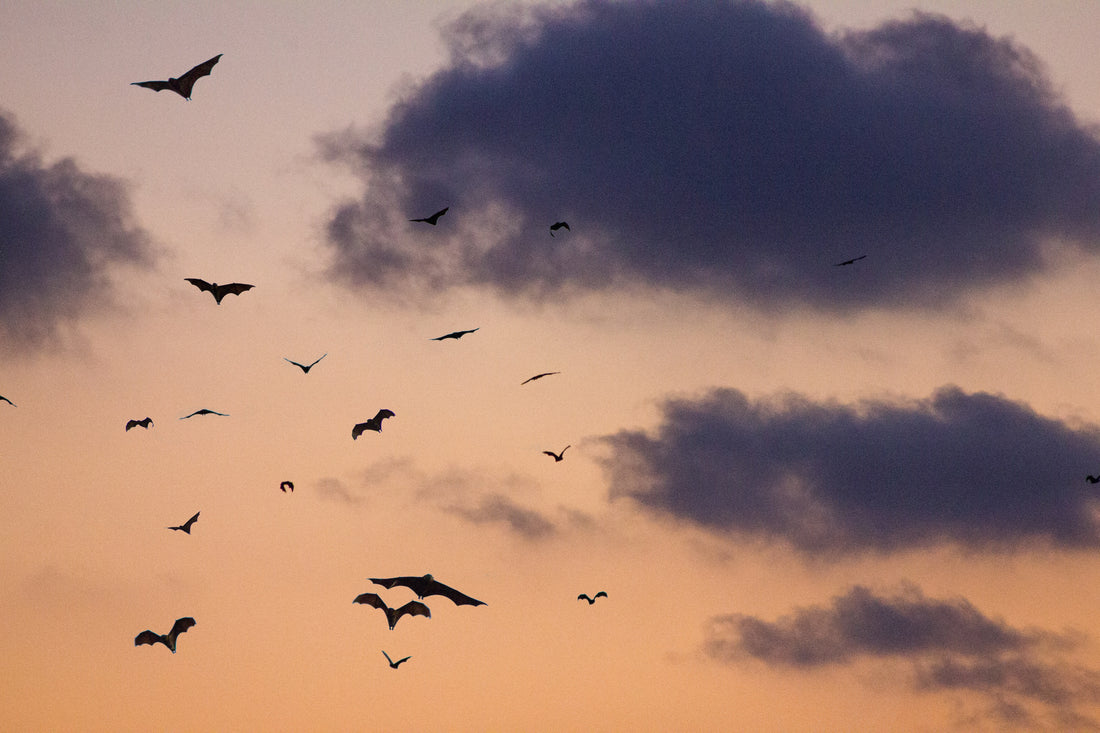The complex ecosystem of fauna and flora we live in works together to create a balanced environment for all beings to thrive. When we understand how each element in the system works, we can appreciate and encourage it to play its role in a holistic way.
Bats are commonly misunderstood by the general public. Movies and lore have portrayed these winged fur balls as sinister beings of the night; however, bats should be celebrated as a crucial aspect of nature! They very rarely bother humans; avoiding them as much as possible. Our hope here is to shed some light on the benefits these nighttime allies provide Mother Nature and how we can all better support them in their important services.

Let's begin with their diet. Bats eat an astronomical number of insects. Different studies have shown they can eat thousands of bugs, such as Japanese beetles, mosquitoes, stink bugs, and leaf hoppers - all in one night! Recent agricultural research on the US corn industry has shown that bats can eat enough insects to save more than $1 billion per year in crop damage and pesticide costs. They are truly serving as nature's pest control.
Secondly, fruit bats feed on nectar, producing critical pollination for plants. In fact, agave plants are solely pollinated by bats. They also eat fruits and disperse the seeds, which is a crucial and necessary service considering the amount of deforestation happening today.
Unfortunately, bat populations are declining rapidly due to being needlessly killed by the disruption and destruction of their habitats, as well as disease.

Luckily, there are a few ways we can help these nocturnal allies in our very own yards.
1. Promote Their Natural Habitat
If you have enough land and can tolerate the look of a dying tree, leave it! Bats use dead trees as roosting sites. You can also plant lots of pollinator plants, attracting a variety of insects, which will provide food for the bats.
2. Stop Using Pesticides
If there are no insects around for them to eat, bats will starve, causing them to relocate. Switch to a spray-free garden where the natural balance of pests will be mitigated by bats and other animals that feast on bugs.
3. Turn Off Unnecessary Lights
These nocturnal creatures are very sensitive to light. Turning off all outdoor lights when you are not using them will help them to better navigate around your garden.
4. Install a Bat Box
Consider providing a home for these furry allies by installing a bat box. Place the box somewhere high (appx. 10 to 20 feet off the ground) that gets plenty of sun so it stays nice and warm inside. Avoid an area that has artificial lighting at night.
Garden Luster is proud to offer our customers high-quality bat houses that were designed with the help of legendary bat conservationist Merlin Tuttle. They are proudly made in America with western red cedar. Check out our three models: Seneca, Carlsbad & Mer
Let's support our local bat populations!


